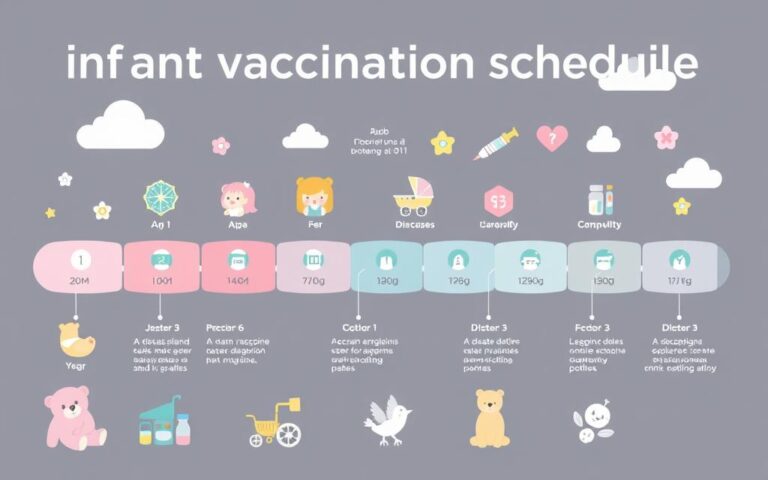Understanding Baby Colic: Symptoms, Duration, and Soothing Techniques

Colic typically begins when a baby is around 2 weeks old, reaches its peak at about 6 weeks, and usually resolves by the time the baby is 4 months old. While common, the incessant and intense crying can be challenging for parents. To alleviate colic, you can try methods like white noise, rocking, swaddling, massage, and holding your baby upright during feedings. Consulting with your baby’s doctor is essential to rule out medical issues, discuss coping strategies, and explore options like anti-gas drops and probiotics.
What Is Colic?
Colic is defined by prolonged and uncontrollable crying in an otherwise healthy baby. A baby is considered colicky if they are under 5 months old and cry for more than three hours a day, at least three days a week, for three consecutive weeks. Colic is not a disease and does not cause long-term harm, but it is a distressing experience for both babies and their parents.
Symptoms of Colic
While babies cry for various reasons, signs that may indicate colic include:
- Excessive crying at the same time each day, often in the late afternoon or evening
- Loud, high-pitched cries that may suggest pain
- Inconsolable crying despite soothing efforts
- Sudden onset and cessation of crying episodes
- Signs of gastrointestinal discomfort, such as gas or tummy pain, which may be exacerbated by swallowed air during crying
A colicky baby may clench their fists, arch their back, have a flushed face, pull up their legs, and pass gas. They might feel better after passing gas or having a bowel movement.
Also read: Will My Breastfed Baby Get Gas If I Eat Certain Foods?
Duration of Colic
Colic tends to peak around 6 weeks and typically improves significantly between 3 and 4 months. By 4 months, 80 to 90 percent of infants are over colic, though some may take a bit longer. During this period, focus on comforting your baby and seek help when needed to manage stress and fatigue.
Possible Causes of Colic
The exact cause of colic is unknown, but several factors might contribute:
- Maternal Smoking: Babies born to mothers who smoked during pregnancy or postpartum are at higher risk of colic.
- Overstimulation: Sensitive babies may cry to release the day’s accumulated sensory overload.
- Tummy Troubles: Gastrointestinal issues, such as gas, underfeeding, overfeeding, or immature digestion, can contribute to colic symptoms.
- Milk Intolerance or Allergy: Some babies react to cow’s milk protein in formula.
- Sensitivity to Maternal Diet: Breastfed babies might react to certain foods in their mother’s diet.
- Gastroesophageal Reflux (GERD): Acid reflux can cause discomfort and colic-like symptoms.
- Gut Bacteria Imbalance: Differences in intestinal microflora may play a role.
- Higher Serotonin Levels: Elevated serotonin levels might cause intestinal muscles to contract more.
- Early Migraine: Colic could be an early indicator of childhood migraines.
- Family Stress: Maternal anxiety or depression, and even paternal depression, are linked to colic.
When to See a Doctor
Consult your baby’s doctor if your baby is excessively crying to rule out conditions like intestinal problems or urinary infections. Immediate medical attention is needed if your baby has symptoms like fever, vomiting, diarrhea, or bloody stools.
Soothing Techniques for Colic
If your baby is diagnosed with colic, try these comforting techniques:
- Gentle Massage: Some babies find gentle massage soothing.
- Noise: White noise or rhythmic sounds, like a clothes dryer or vacuum, can be calming.
- Silence: Some babies respond better to quiet and stillness.
- Motion: Rocking or carrying your baby in a front carrier can help.
- Fresh Air: Taking your baby for a walk can provide a change of environment and help them relax.
- Different Positions: Experiment with different holding positions to find what’s most comfortable for your baby.
- Swaddling: Wrapping your baby snugly in a blanket can provide a sense of security.
- Warm Bath: A warm bath can be relaxing and distract your baby from crying.
- Pacifying: Offer a pacifier or encourage your baby to suck on a clean finger.
- Ease Gas: Keep your baby upright during feedings and burp them frequently.
- Warm Water Bottle: Place a warm (not hot) water bottle wrapped in a towel on your baby’s belly.
Medications and Supplements
Apart from probiotics, anti-gas drops like simethicone can be tried, though their effectiveness for colic is not proven. Avoid giving your baby solid foods, antispasmodics, antihistamines, or herbal remedies without consulting your doctor.
Coping Strategies for Parents
Handling a colicky baby is tough. Remember:
- It’s Not Personal: Your baby’s crying is not a reflection of your parenting.
- Seek Help: Share baby care with your partner or a friend to get breaks.
- Take Care of Yourself: Rest, eat well, and exercise to cope with stress.
- You’re Helping: Holding and comforting your baby, even if they continue to cry, provides reassurance.
By following these tips and seeking support, you can better manage the challenges of colic and provide comfort to your baby.
Also read: What To Do When Your Baby’s Crying For No Reason?





